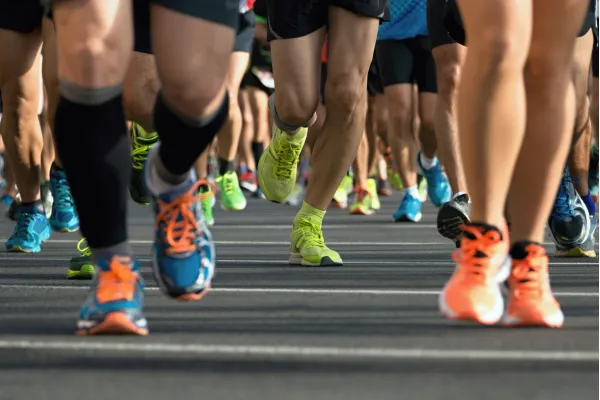
Runners, Listen to Your Feet: Avoiding Common Injuries
Whether you're training for your first 5K or your tenth marathon, one thing is certain: your feet are your engine. And just like any engine, they need regular maintenance.
At Achilles Foot Clinic, we see plenty of runners who push through aches and pains—only to end up sidelined with preventable injuries. If your feet could talk, here’s what they’d say.
1. "Don’t Ignore That Heel Pain"
Persistent pain under your heel could be plantar fasciitis—a common issue caused by tight calves, worn-out shoes, or increasing mileage too quickly. Left untreated, it only gets worse.
What to do:
Stretch your calves daily, use proper footwear with arch support, and ice after runs if soreness appears.
2. "I Need Better Shoes"
Shoes are the most important tool in your running kit. Old or ill-fitting runners can cause shin splints, blisters, or tendonitis.
What to do:
Visit a specialist store for a proper fit, and replace your runners every 600–800 km. Make sure your shoes match your running style and foot type.
3. "Take Me to a Soft Surface"
Concrete is tough on joints and feet. Repeated impact can lead to stress fractures or joint irritation.
What to do:
Mix in softer surfaces like grass, trails, or a track to reduce impact and vary your muscle use.
4. "I Need a Break Sometimes"
Overtraining is a fast track to injury. Your feet need rest just as much as they need training.
What to do:
Build in rest days and consider cross-training with low-impact options like swimming or cycling.
5. "Give Me a Good Stretch After"
Skipping cool-downs tightens muscles and shortens tendons, setting the stage for injury.
What to do:
Include post-run stretches for your calves, hamstrings, and plantar fascia. Just 5–10 minutes can make a big difference.
Listen Early, Heal Faster
Small twinges can turn into major injuries if you ignore them. The sooner you address pain, the faster you’ll be back on your feet—literally.
Need help running pain-free?
Our podiatry team in Ballincollig specialises in running-related injuries. We’ll assess your feet, gait, and footwear to keep you strong, steady, and moving forward.
